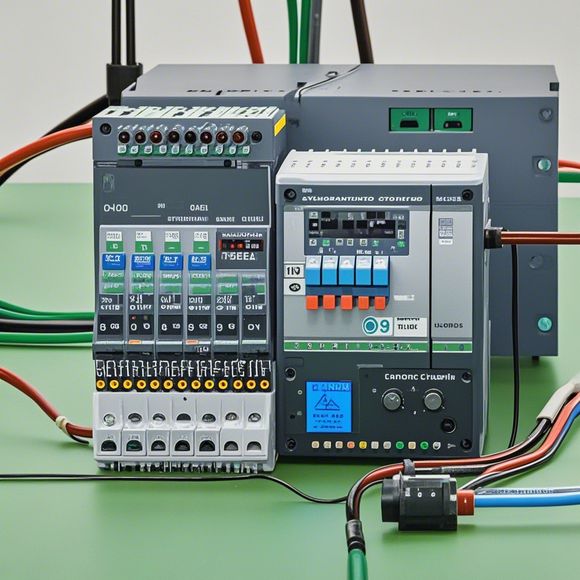PLC Controller for Automation in a Manufacturing Process
In the manufacturing industry, PLC controllers have become an essential tool for automation. These controllers are responsible for controlling the flow of production, ensuring that every step is performed correctly and efficiently. They are used to monitor and control various processes such as assembly line operations, material handling, and quality control.With PLC controllers, manufacturers can achieve higher levels of efficiency and productivity. By using advanced software and hardware, they can automate complex tasks and minimize human error. This not only reduces costs but also enhances product consistency and quality.Overall, the use of PLC controllers in manufacturing automation has significantly impacted the industry. As technology continues to advance, we can expect even more advanced solutions to emerge that will further improve efficiency and productivity.
In today's highly competitive global market, the implementation of automation technologies is becoming increasingly essential for businesses to remain ahead of their competitors. Amongst these advanced automation solutions, Programmable Logic Controllers (PLCs) have proven to be invaluable tools that allow for precise and efficient control over manufacturing processes. This guide will provide insights on how to effectively utilize PLCs to enhance productivity and operational efficiency within your manufacturing facility.
The first step towards achieving optimal performance with PLCs involves understanding their role and capabilities. As versatile as they are, PLCs serve as a bridge between human input and industrial machinery, enabling precise control over various aspects of manufacturing operations. They are designed to handle complex tasks such as monitoring and adjusting machine speeds, managing inventory levels, and coordinating workstations across a plant floor.
One of the primary benefits of using PLCs is the ability to program them with intricate algorithms and logic rules that can be customized to suit specific needs of each manufacturing process. This flexibility allows you to tailor your PLCs to meet changing demands, making it easier to adapt to new technologies or optimize existing ones. Additionally, PLCs are highly reliable and can operate safely without human intervention, which is critical in high-risk environments like those found in chemical or pharmaceutical plants.

Another significant advantage of PLCs lies in their ease of integration with other automation systems. By integrating your PLCs with software platforms such as SCADA or HMI systems, you can create a comprehensive monitoring and control system that provides real-time data analysis and decision-making support, enhancing overall operational efficiency. Moreover, the use of modern communication protocols ensures seamless interoperability with other devices within your manufacturing network, further streamlining processes and reducing errors.
To maximize the benefits of PLCs, it is crucial to invest in the latest generation models available on the market. Advanced PLCs offer enhanced processing power, increased memory capacity, and improved connectivity options, allowing for more complex and efficient tasks to be handled. Furthermore, investing in professional maintenance and training services ensures that your PLCs remain optimized for peak performance, minimizing downtime and maximizing return on investment.

When selecting an PLC, consider factors such as compatibility with existing systems, cost-effectiveness, and reliability. It is essential to choose a model that aligns with your company's goals and budget while ensuring that it meets regulatory requirements for safety and efficiency. Additionally, take into account the size of your production facility and the number of PLCs required to cover all necessary areas of control.
In conclusion, PLCs represent an essential component of any modern manufacturing operation. With their ability to program complex logic rules, integrate seamlessly with other automation systems, and offer unparalleled control over various aspects of production, these controllers offer tremendous advantages for increasing productivity, improving safety, and reducing costs. By understanding their capabilities and selecting the right model for your needs, you can unlock the full potential of this powerful technology in your manufacturing facility.

Content expansion reading:
Articles related to the knowledge points of this article:
Smart Manufacturing Solutions with PLC Integrated Machinery
PLC Controller Selection Guide for Foreign Trade Operations
PLC Controller for Manufacturing Automation
PLC Controllers: A Comprehensive Guide to Understanding Their Prices